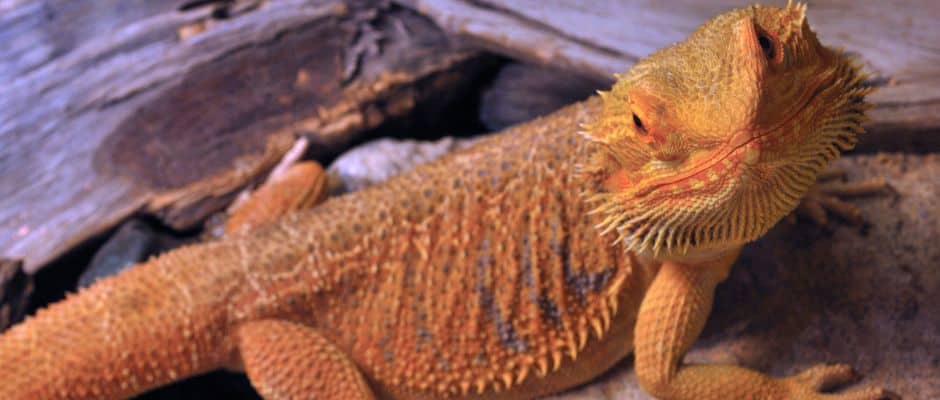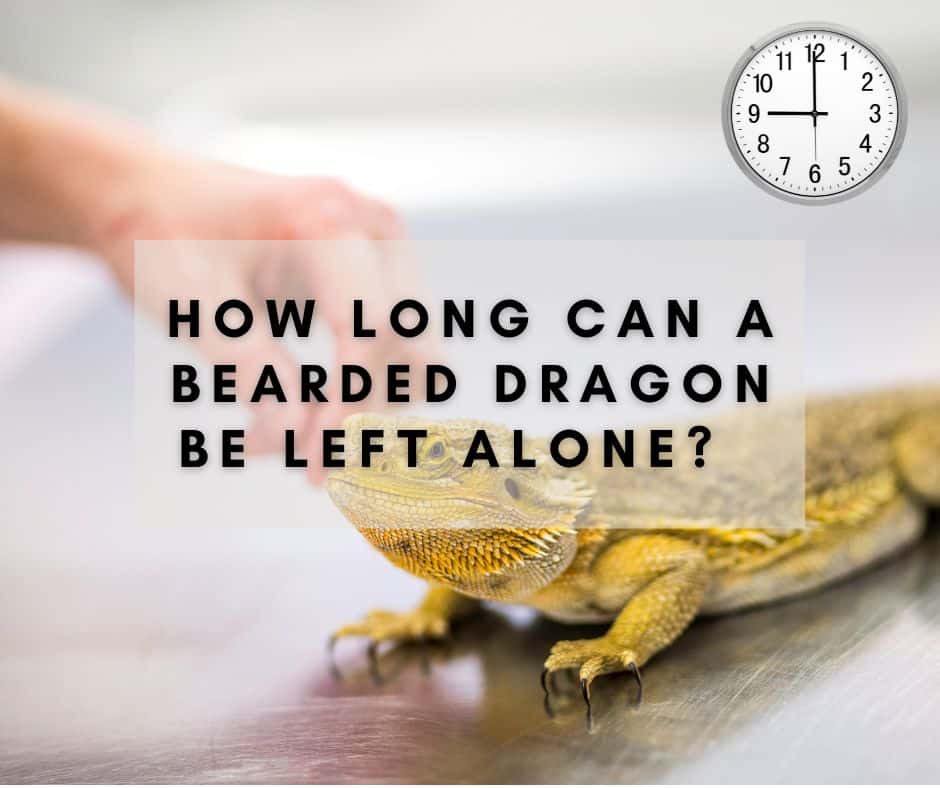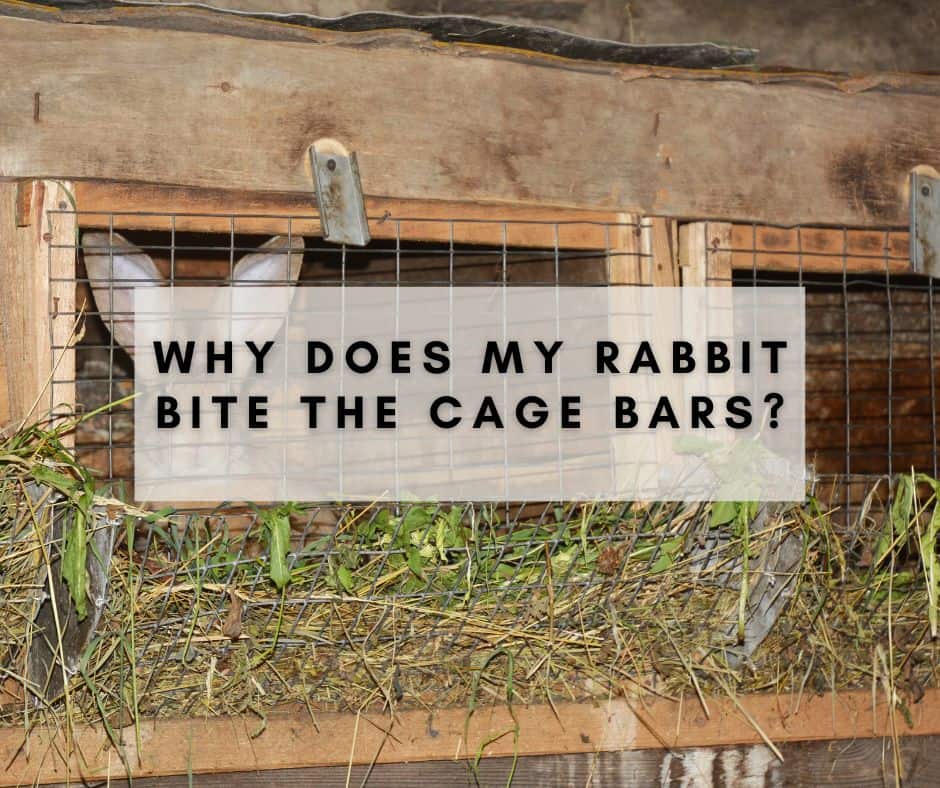Bearded dragons are one of the most popular reptile pets, known for their friendly temperaments and unique appearance. However, owning a bearded dragon is not just about having a cool-looking pet. As responsible owners, we have to take care of our pets’ needs, including providing them with proper food, water, and environmental conditions.
One important aspect that many bearded dragon owners overlook is how long they can be left alone. Whether you’re going on vacation or simply need to leave your home for an extended time, it’s crucial to understand your pet’s limitations and plan accordingly.
Contents
Understanding How Long Your Bearded Dragon Can Be Left Alone
It’s easy to get caught up in our daily routines without considering how they affect our pets. However, leaving your bearded dragon alone for too long can have serious consequences on their health and well-being. The amount of time that a bearded dragon can be left alone varies depending on several factors.
For example; young dragons require more attention than older ones that can handle longer periods alone; sick or injured dragons may need more frequent care compared to healthy ones who can handle longer periods alone. There is also the difference between short-term and long-term absences.
As a general rule, you can leave adults for 2-3 days, “teens” for about a day, and juveniles should not be left alone.
It’s crucial to consider all these factors when planning your absence from home to ensure that your bearded dragon is not at risk of dehydration, malnourishment, or other health problems. In our next section, we’ll take a closer look at these factors and how they affect the amount of time your bearded dragon can safely be left alone.

A Brief Overview of Bearded Dragons as Pets
Bearded dragons are native to Australia and belong to the family Agamidae. They are diurnal (active during the day) and require specific environmental conditions such as basking spots to regulate their body temperature. They are omnivorous and eat a variety of insects, fruits, vegetables, and greens.
As pets, bearded dragons can live up to 15 years with proper care and attention. They grow up to 24 inches in length from head to tail tip and require large enclosures with appropriate lighting sources.
Factors to Consider
Age of the Bearded Dragon: Younger Dragons Require More Attention
Let’s get one thing straight: bearded dragons are not low-maintenance pets. They require a lot of attention, especially when they’re young. It’s no secret that young children need more frequent care and attention than adults do, and the same goes for bearded dragons.
If you’re considering getting a baby beardie, be prepared to provide more attention than you would an adult. Younger dragons need to be fed more frequently (up to three times daily) and require more monitoring.
They also have weaker immune systems, making them more susceptible to diseases and infections. This means that if you’re planning on leaving your baby dragon alone for an extended period, you’ll need to arrange for someone to check on them regularly.

Age of the Bearded Dragon: Older Dragons Can Handle Longer Periods Alone
On the flip side, older bearded dragons can handle longer periods alone than their younger counterparts. Once they reach adulthood (around 18 months old), they only need to eat once a day and don’t require as much supervision as younger dragons do.
That being said, don’t use this as an excuse to neglect your duties as a pet owner. Even though adult dragons can handle longer periods alone, they still need care and attention from their humans.
Health and Well-being: Sick or Injured Dragons May Need More Frequent Care
Just like with humans, sick or injured animals require more frequent care and attention than healthy ones do – it’s common sense! If your dragon is sick or injured in any way, you must provide them with proper care until they’re fully recovered.
This may mean administering medication or supplements at specific times throughout the day or providing additional food and water. It may also mean arranging for someone to check on your dragon more frequently while you’re away.
Health and Well-being: Healthy Dragons Can Handle Longer Periods Alone
If your bearded dragon is healthy, it can handle longer periods alone than sick or injured ones. However, this doesn’t mean that you should leave them alone for extended periods without any care or attention.
Even healthy dragons need to be fed, have their enclosure cleaned regularly, and require proper lighting and temperature regulation. Neglecting these basic needs can result in a sick or unhappy pet.
The age and health of your bearded dragon are important factors to consider when determining how long they can be left alone. Younger dragons require more frequent care, while older dragons can handle longer periods alone.
Sick or injured dragons need more attention than healthy ones do. However, regardless of their age or health status, all bearded dragons require proper care and attention from their humans – it’s our responsibility as pet owners!

Short-term vs Long-term Absences
Tips for leaving your dragon alone for a few hours
Leaving your bearded dragon alone for a few hours is not a big deal, but it does require some preparation. You need to ensure that you provide enough food and water for them to last during your absence.
Make sure the temperature and lighting in their enclosure are appropriate, and check that any heating or lighting devices are properly set up and functioning correctly. And most importantly, secure the enclosure to prevent escapes or accidents.
What to do if you need to leave your dragon overnight
If you have to leave your bearded dragon alone overnight, it’s best to hire a pet sitter or ask a friend who knows how to handle reptiles to check on them at least once. They can ensure that everything is okay with the enclosure and temperature, and provide fresh food and water if necessary. Alternatively, you can set up an automatic feeder or waterer if you’re confident in their use.
Long-term absences (more than a day)
When it comes to leaving your bearded dragon alone for longer than a day, there’s no straightforward answer as different factors come into play like the age of the beardie; their health status; and overall living conditions like humidity level in the tank/terrarium. However, as an expert writer with years of experience handling bearded dragons–I would say anything more than three days long is pushing the danger zone! Leaving them unattended without proper care for such extended periods puts them at risk of dehydration or starvation.
How long is too long?
The maximum amount of time depends on various factors including the age of the beardie; health status; living conditions such as humidity level; etcetera which are beyond our control as pet owners. Hence it is important to not leave your bearded dragon alone for more than three days without having someone (friend, family, or pet sitter) check on them at least once a day.
Conclusion
Taking care of your bearded dragon requires a lot of responsibility, but that doesn’t mean you can’t take time off. Whether for short-term or long-term absences, it’s essential to ensure that they are well taken care of.
Hiring a pet sitter or asking a friend/family member to look after your beardie is the best option when you need to leave them unattended for an extended period. Always remember that ensuring their safety and health should be your top priority as a responsible pet owner!
Extended absences without proper care for such periods can put your bearded dragon at risk of dehydration or starvation.
It’s not recommended to leave your bearded dragon alone for more than three days without having someone check on them at least once a day.
Young bearded dragons need to be fed up to three times daily. Adult dragons, once they reach around 18 months old, only need to eat once a day.
Yes, older bearded dragons can handle longer periods alone as they require less supervision and feeding. However, this doesn’t excuse neglecting the pet’s needs.
Yes, the health of a bearded dragon significantly impacts how long it can be left alone. Sick or injured dragons require more frequent care and attention, while healthy dragons can handle longer periods alone.




